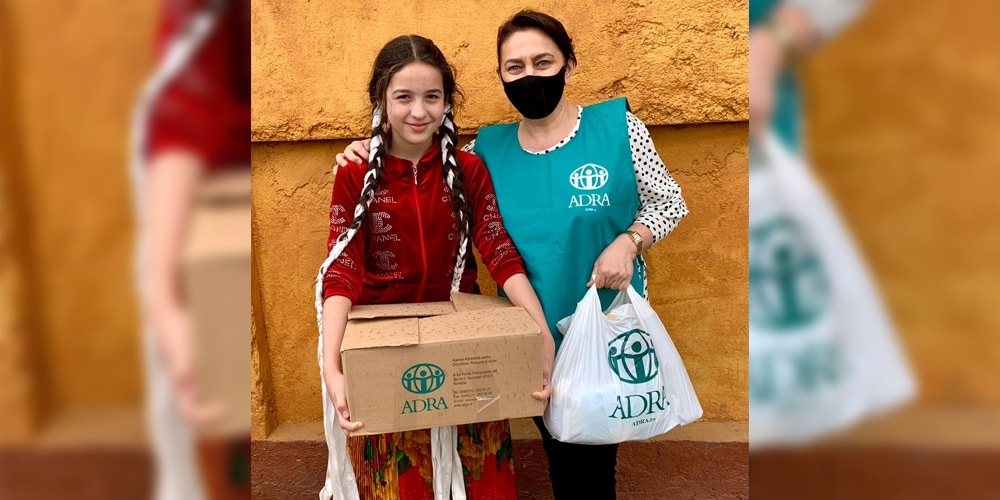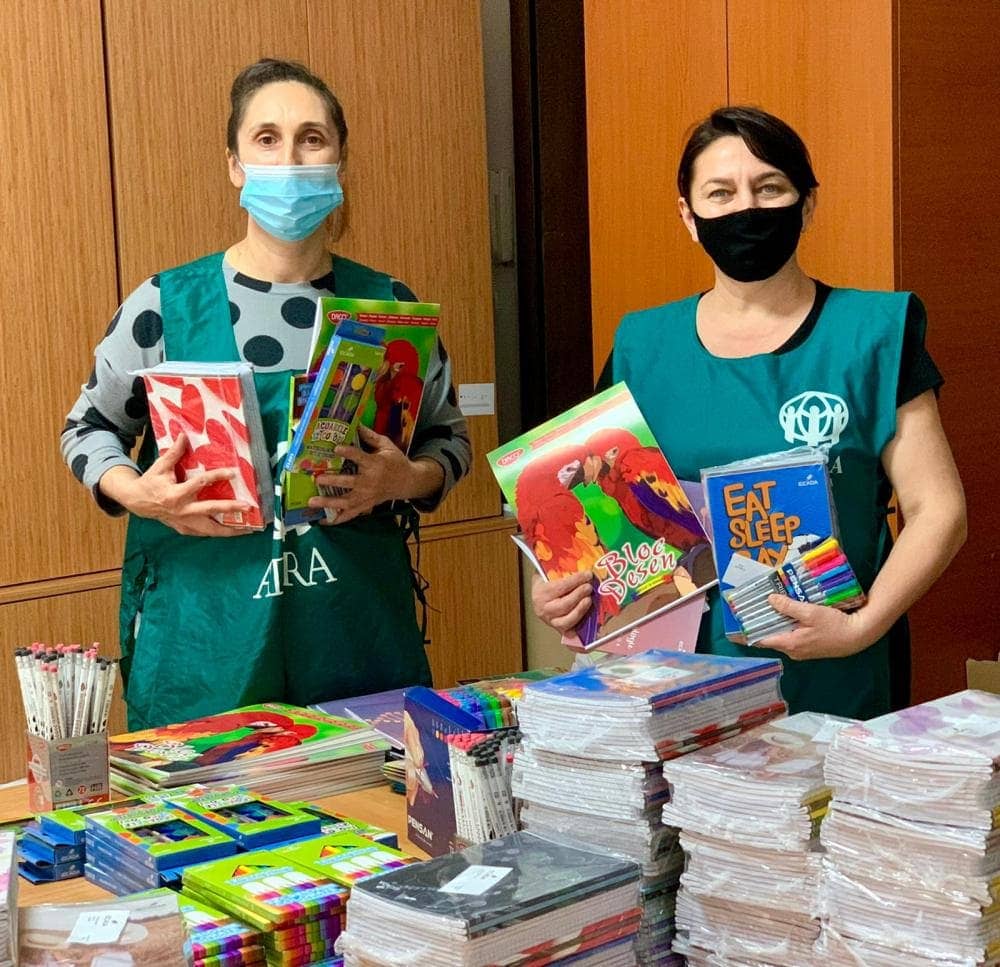
Since the pandemic’s beginning in March 2020, many people across the globe have experienced fear, isolation, pain, and loss, adding to an uncertain future. But Adventist Development and Relief Agency (ADRA) Europe teams, together with church volunteers, have responded by bringing hope, relief, and by allowing to serve others “so all may live as God intended,” as ADRA’s motto says.
These teams served on the frontlines by providing shelter and food for the homeless, supporting health-care and mental health services, providing education, and helping the vulnerable, organization leaders said.
The World Health Organization (WHO) declared a worldwide pandemic on March 11, 2020. This unprecedented crisis created dramatic social challenges. The poorer and most vulnerable in society have been affected, and even middle-class Europeans have been forced to seek government social support.
Employees at ADRA Europe offices work with people from developing countries every day. The pandemic severely hit these countries, and millions more than usual were pushed into extreme poverty. ADRA Europe teams were called to react in a fast and organized way. All over the region, ADRA created partnerships with local churches, local officials, and other partners to support the most affected in society.
ADRA teams from “richer” donor countries reacted by strengthening their links with their government. Thus, they secured funding for relief activities in poorer countries. ADRA teams, active inside their own countries, sought additional funds for their national response programs.
The Strategy
All projects implemented in Europe were in partnership with the Seventh-day Adventist Church, focusing on three main pillars.

ADRA leaders reported that the pillars included education, by supporting the children to get some instruction even when the schools were closed. It also included health, as they organized the distribution of personal protective equipment and provided psychosocial support. Finally, it included care for people’s livelihood, by distributing food and vouchers to needy families, minorities, and the homeless.
Projects and Impact
The ADRA network started with some initial projects as a response to the COVID-19 virus outbreak. Seventeen countries in Europe — nine from the Inter-European Division and eight from the Trans-European Division — received ADRA financial support to implement relief activities. ADRA International’s Emergency Management Unit in the U.S. managed the funding, and the operational management was coordinated by ADRA Europe in Brussels, Belgium. Most projects were implemented from March to December 2020.
“One of the primary purposes of supporting the 17 countries with initial response funding was to help them start the relief activities immediately and simultaneously do fundraising for further actions,” ADRA Europe leaders reported. “Fifteen countries out of the 17 achieved this goal. Besides that, several countries received financial and material support from companies, and five of them were able to secure public funding.”
ADRA’s Intervention Results
“ADRA served on the frontlines by providing shelter and food for the homeless, supporting health-care and mental health services, providing education, and helping vulnerable seniors, youth, children, and families in Europe and around the world,” ADRA Europe leaders reported. “Indeed, we were all in this together,” they emphasized.
At the same time, they noted, ADRA employees and volunteers didn’t remain silent. ADRA volunteers and workers “called for global solidarity in the form of access to equal and quality education for all learners, universal welfare support, and support for civil society organizations.”
ADRA Europe expressed appreciation to everyone involved in these initiatives during the worst of the pandemic. “The ADRA Europe team expresses appreciation to every ADRA employee, volunteer, and leader for dedicated hard work, quick adjustments, sparkling humor, innovation, and creativity,” a release of the ADRA Europe Press Office said. “Yet, there is still a long way ahead of us. Poorer developing countries face even harder health and economic challenges on a long road to recovery,” it acknowledged, adding, “Solidarity with developing countries is a moral decision. Failure to pass this international solidarity test will leave deep wounds in countries left behind, paving the way for all manner of extremism and new crises — from pandemics to conflicts — which would threaten everyone.”
The release also emphasized the human aspect of the response during the crisis. “The world and its inhabitants had a painful lesson of a deeper understanding of human ties. We are all interconnected and are members of one human family,” it read. “As Seventh-day Adventist Christians and as ADRA teams, we put people first and will continue to do so in the years to come, because we are in this together.”
The original version of this story was posted on the Inter-European Division news site.